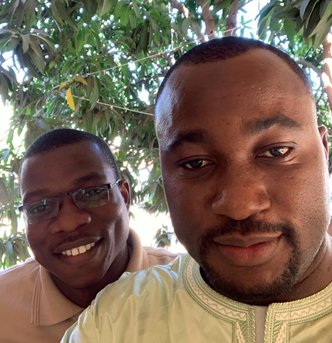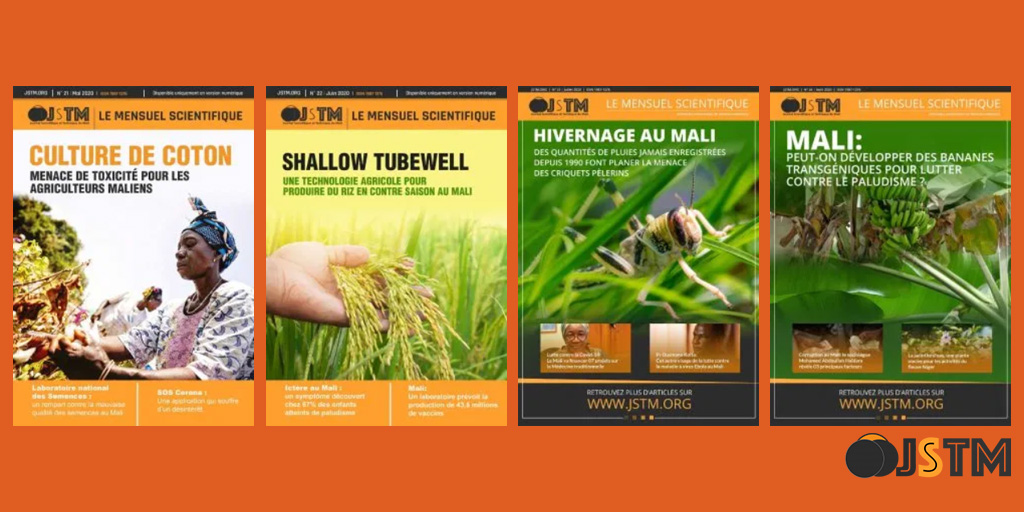Building an evidence-based culture in Mali
Science sparks innovation, and innovation can help tackle global challenges. In recent years, several initiatives have come about to develop and boost science from Africa, in Africa. There are new journals like Scientific African, and initiatives like the African Journal Partnership Program (AJPP), which connects African journals with older, more established journals. African Journals Online (AJOL) currently lists 526 journals from across the continent – the large majority from Nigeria.
They might have to expand their list soon, if it were up to Hilaire Diarra from Mali. Diarra is the co-founder of the Journal Scientifique et Technique du Mali. For four years, they have been publishing a monthly online magazine about science, targeted at the general public. Now, Diarra wants to go further and start five scientific journals from their home base at the Université de Bamako.
When I first found out about Research4Life, it felt like a dream come true! It includes thousands of articles, in every possible scientific field. More people should know about it!

“We started JSTM to make local science available to the public. There is a real lack of evidence-based information and no tradition of fact-checking here in Mali. Our aim is to make science accessible, but also to improve the quality of science writing.”
An extra challenge was to find ways to convince people to read their articles, Diarra says, even if they are well-written and target a broad audience. “People here simply don’t read. They are not used to it. We lack the reading culture that you have in the North. So we have to put in a lot of effort to capture people’s attention through good photography, a nice lay-out… We are constantly thinking about how to visually present our stories.” According to UNESCO data, Mali has a literacy rate of 35%, with a considerable gender gap.
Collaborations with the French Institut de Recherche pour le Développement (IRD) and SciDev, a news site that focuses on science and technology in the context of global development, help Diarra’s to be financially self-sufficient.

Research4Life has recently also added JSTM to its collection of scientific and professional resources available to institutions in low- and middle-income countries. “It’s key to collaborate with the right people and initiatives. When I first found out about Research4Life, it felt like a dream come true! It includes thousands of articles, in every possible scientific field. More people should know about it!”
The marketing efforts seem to be paying off. The JSTM website has about 4000 visitors a day. The most popular stories? “Anything to do with creative people designing something innovative. Reading about progress is exciting to people,” Diarra notes. Most visitors come from West Africa, but also from the United States, France, Canada and so on. Recently, the industrial community here has also reached out for a possible collaboration.
Big ambitions
All of this is needed, if Diarra wants to materialize his company’s plans to delve into scientific publishing. For this, he’s joined forces with the Malian Society of Applied Sciences (MSAS), a network of Malian scientists based all over the world. Currently, there are no academic journals published in Mali. “Senegal has a few, and so does Burkina Faso. We eventually want to expand to Ivory Coast, Burkina, Senegal and further.”
But first, he has to set up his journals. The plan is to start five, each focused on one discipline: social sciences, mathematics, engineering, live sciences, agriculture. Editorial boards are already established, and the peer review process has been mapped out. “Some people have even sent their studies over for consideration. Our next big step will be a call for submissions.”
A successful launch will partly depend on the number and quality of submissions. “We were given an office at the university of Bamako, where we can luckily still work at the moment. Getting enough submissions will require a big marketing effort. Moreover, we want to improve our skills as publishers as well as the tools that we work with,” Diarra says.
Once the journals are up and running, they will also be considered for inclusion in Research4Life, which will again help Diarra connect with a global audience of academics. “It’s so exciting to join Research4Life. This is without a doubt going to increase our profile as a publisher, and will help us become more professional,” Diarra notes, adding that he is keen to collaborate with more experienced journal publishers.





